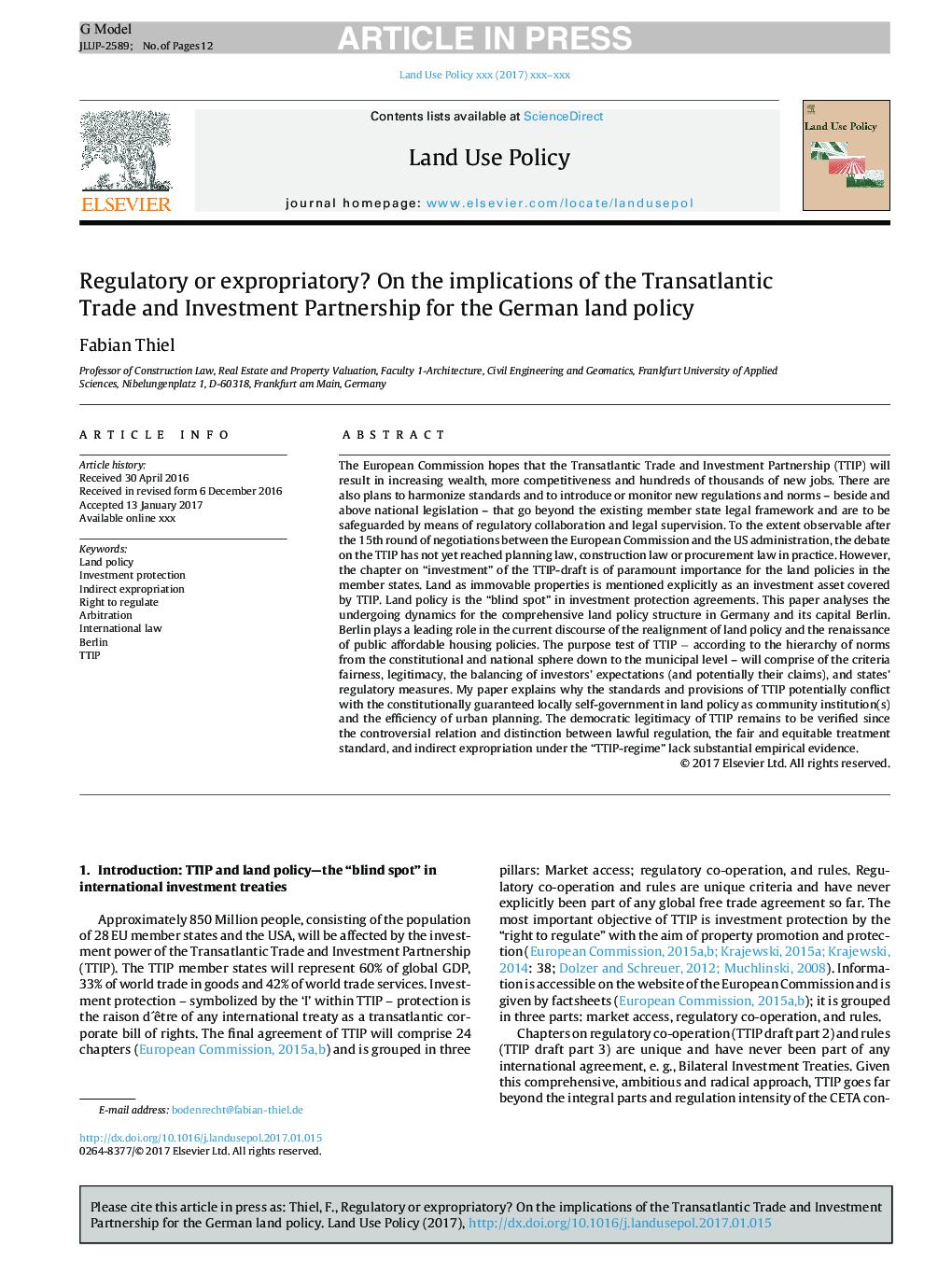| کد مقاله | کد نشریه | سال انتشار | مقاله انگلیسی | نسخه تمام متن |
|---|---|---|---|---|
| 6546213 | 1421806 | 2018 | 12 صفحه PDF | دانلود رایگان |
عنوان انگلیسی مقاله ISI
Regulatory or expropriatory? On the implications of the Transatlantic Trade and Investment Partnership for the German land policy
دانلود مقاله + سفارش ترجمه
دانلود مقاله ISI انگلیسی
رایگان برای ایرانیان
کلمات کلیدی
موضوعات مرتبط
علوم زیستی و بیوفناوری
علوم کشاورزی و بیولوژیک
جنگلداری
پیش نمایش صفحه اول مقاله

چکیده انگلیسی
The European Commission hopes that the Transatlantic Trade and Investment Partnership (TTIP) will result in increasing wealth, more competitiveness and hundreds of thousands of new jobs. There are also plans to harmonize standards and to introduce or monitor new regulations and norms - beside and above national legislation - that go beyond the existing member state legal framework and are to be safeguarded by means of regulatory collaboration and legal supervision. To the extent observable after the 15th round of negotiations between the European Commission and the US administration, the debate on the TTIP has not yet reached planning law, construction law or procurement law in practice. However, the chapter on “investment” of the TTIP-draft is of paramount importance for the land policies in the member states. Land as immovable properties is mentioned explicitly as an investment asset covered by TTIP. Land policy is the “blind spot” in investment protection agreements. This paper analyses the undergoing dynamics for the comprehensive land policy structure in Germany and its capital Berlin. Berlin plays a leading role in the current discourse of the realignment of land policy and the renaissance of public affordable housing policies. The purpose test of TTIP â according to the hierarchy of norms from the constitutional and national sphere down to the municipal level - will comprise of the criteria fairness, legitimacy, the balancing of investors' expectations (and potentially their claims), and states' regulatory measures. My paper explains why the standards and provisions of TTIP potentially conflict with the constitutionally guaranteed locally self-government in land policy as community institution(s) and the efficiency of urban planning. The democratic legitimacy of TTIP remains to be verified since the controversial relation and distinction between lawful regulation, the fair and equitable treatment standard, and indirect expropriation under the “TTIP-regime” lack substantial empirical evidence.
ناشر
Database: Elsevier - ScienceDirect (ساینس دایرکت)
Journal: Land Use Policy - Volume 77, September 2018, Pages 778-789
Journal: Land Use Policy - Volume 77, September 2018, Pages 778-789
نویسندگان
Fabian Thiel,